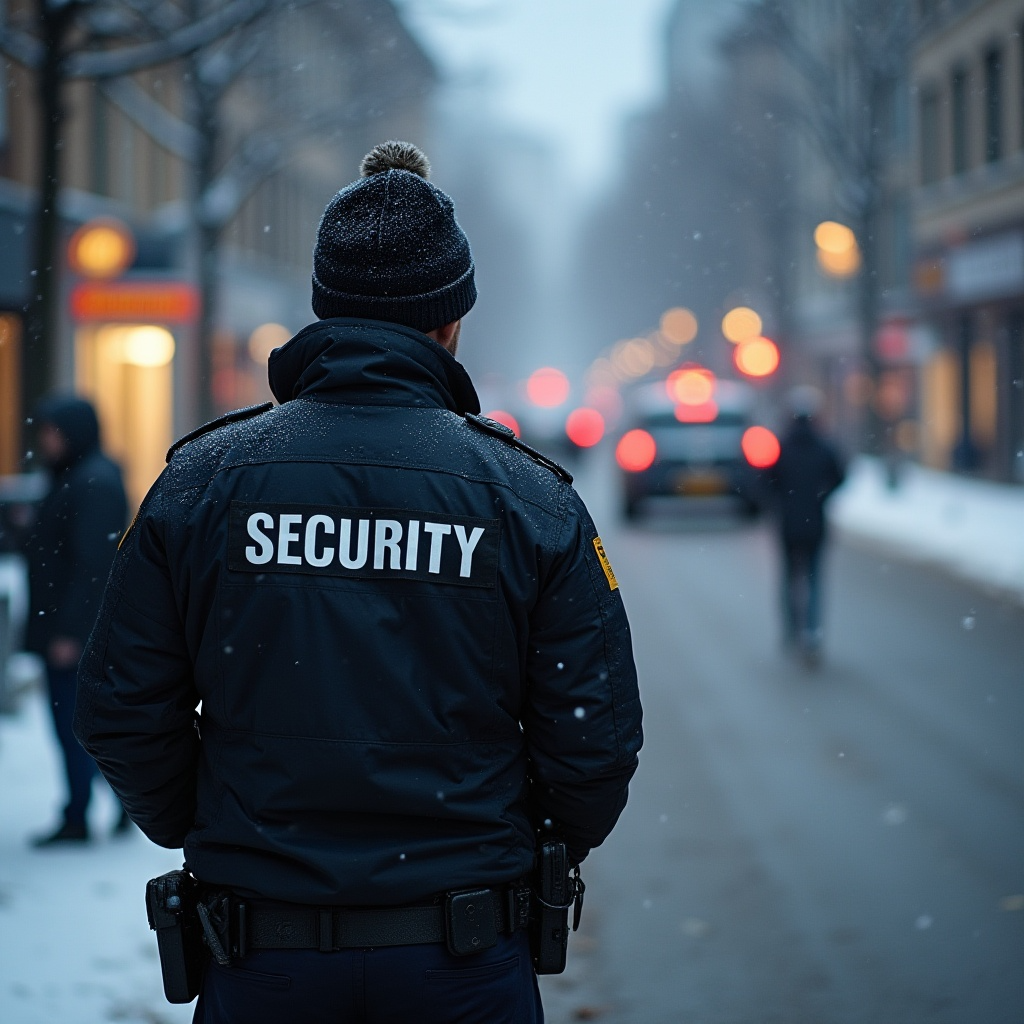Protecting Your Property During the Colder Months
Winter brings more than frost and shorter days. For commercial property owners and managers, the colder months present a unique set of security challenges. Longer nights, harsh weather, and increased social issues such as homelessness can all combine to increase risks to your property. Understanding these threats and taking proactive measures can help protect your assets, staff, and customers.
Why Winter Increases Security Risks
1. Homelessness and Encampments
As temperatures drop, more vulnerable individuals seek shelter wherever they can find it. Commercial buildings, especially those with secluded corners, rooftop areas, loading bays, or underused car parks, can become temporary refuges. While most people are just trying to stay warm, these encampments can create safety risks, including:
- Increased fire hazards if temporary heating methods are used.
- Blocked access to entrances, exits, or emergency routes.
- Potential conflicts or safety issues with staff or visitors.
Winter also sees a rise in panhandling and trespassing. While your first concern is safety, it’s also important to approach the situation with empathy, directing people toward local shelters or outreach programs whenever possible.
2. Theft, Burglary, and Vandalism
With longer hours of darkness and fewer passersby, winter is a peak time for opportunistic crime. Unlit areas, unmonitored car parks, and unoccupied buildings become prime targets for thieves or vandals. Seasonal items such as festive displays, stock deliveries, or construction equipment can also attract unwanted attention.
3. Accidents and Liability
Slips, trips, and falls are more common during winter. Snow, ice, and wet conditions increase the risk of injury for employees, visitors, or trespassers. This is not only a safety concern but also a potential legal liability. Maintaining safe walkways and entrances is crucial to prevent accidents and protect your business from claims.
Practical Security Measures for Winter
1. Improve Lighting
Good lighting is a simple but highly effective deterrent. Focus on:
- Dark corners, alleyways, and car parks.
- Entry and exit points for employees and customers.
- Motion-sensor lights to alert staff and startle potential intruders.
Even well-lit properties can benefit from regular checks to ensure bulbs aren’t burned out or obscured by snow or debris.
2. Increase Patrols
Adding human presence through regular patrols can drastically reduce security risks. Guards or security staff can:
- Monitor areas for suspicious activity or encampments.
- Respond quickly to incidents or alarms.
- Offer a visible deterrent to would-be intruders.
Winter hours are particularly critical for patrols, as crime is more likely during early mornings and late evenings.
3. Collaborate with Local Services
Homelessness is a complex social issue, and a purely defensive approach can be counterproductive. Consider:
- Partnering with local shelters or charities to provide support and guidance.
- Displaying information about local outreach programs in discreet areas.
- Training staff on how to respond safely and compassionately if they encounter vulnerable individuals.
This approach can reduce the likelihood of encampments and demonstrates corporate responsibility.
4. Winter Maintenance and Safety
Property safety goes beyond security. A proactive winter maintenance plan helps prevent accidents:
- Clear snow and ice from entrances, walkways, and parking areas.
- Use non-slip materials on steps and ramps.
- Ensure roof drains and gutters are clear to prevent water damage or ice buildup.
- Keep fire exits and emergency routes unobstructed at all times.
5. Enhance Surveillance
Surveillance cameras are even more important in the darker months. Modern systems offer:
- Night vision or low-light capabilities.
- Remote monitoring for instant alerts.
- Integration with alarm systems to trigger security response.
CCTV not only helps detect incidents but can also deter potential intruders when signage is clearly displayed.
Special Considerations for Seasonal Risks
Winter isn’t just about the cold. It’s also about managing the effects of seasonal behaviour and social trends:
- Stock and Deliveries: Increased stock, seasonal displays, or holiday deliveries can be attractive targets for theft. Keep valuable goods secure and monitor loading areas.
- Events and Festivities: Christmas lights, decorations, or winter events attract crowds, but also potential theft or vandalism. Temporary patrols or event-specific security staff can help.
- Emergency Preparedness: Winter storms or power outages can affect lighting and security systems. Ensure backup power solutions are in place for critical security measures.
Balancing Security with Compassion
Protecting your property is vital, but it’s also important to handle winter homelessness with sensitivity:
- Avoid hostile measures like anti-homeless spikes, which can harm your reputation and cause legal issues.
- Focus on solutions that combine safety with social responsibility, such as liaising with local councils or charities.
- Train staff to respond safely and empathetically to anyone seeking shelter on your property.
This approach not only reduces risk but demonstrates community awareness and ethical responsibility.
How 3000 Security Can Help
At 3000 Security, we understand the unique challenges winter brings. Our services for commercial properties include:
- Professional Winter Patrols: Experienced staff monitoring your premises day and night.
- CCTV and Alarm Integration: Ensuring your systems remain effective in low-light conditions.
- Fire and Safety Compliance: Checking that emergency routes remain clear and risk areas are managed.
- Strategic Advice: Tailored security plans addressing seasonal risks and social issues.
We help businesses stay safe, reduce liability, and manage seasonal challenges proactively.
Winter Security FAQ
- How does winter affect property security?
Longer nights and colder weather can increase theft, vandalism, and trespassing risks. Homeless encampments also become more common. - What measures can protect my property?
Improve lighting, increase patrols, maintain walkways, use surveillance, and liaise with local outreach programs. - Can security staff help with winter-specific risks?
Yes. Trained guards can monitor areas for trespassers, respond to incidents, and provide guidance on managing vulnerable individuals safely. - Do I need extra insurance in winter?
While your standard policy covers general risks, it’s worth reviewing for seasonal hazards like slips, trips, and damage caused by encampments or weather. - How can I balance security and compassion?
Focus on protective measures that also consider vulnerable people, collaborate with local shelters, and train staff to handle situations safely and respectfully. - How much does winter security cost?
Costs vary depending on property size, patrol frequency, and additional measures like CCTV or alarm upgrades. Providers can give tailored quotes.
7. What training do winter security guards receive?
Guards are trained in emergency response, first aid, handling trespassers, winter-specific hazards, and site-specific procedures to ensure safety and compliance.


